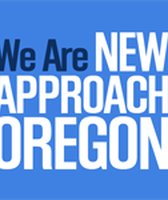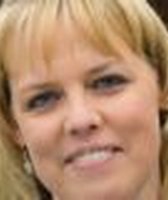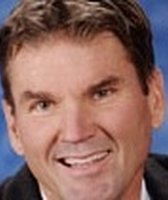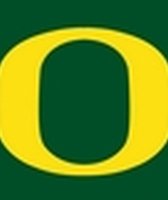Get PolitiFact in your inbox.
In first debate with John Kitzhaber, Chris Dudley says Oregon’s school system ranks 43rd nationally
During the first, and possibly only, gubernatorial debate, Republican candidate Chris Dudley addressed the need for statewide educational reform. To underscore the necessity, he mentioned -- twice -- that Oregon’s school system ranked 43rd nationally.
"I was disappointed that when, in the Race to the Top, Oregon's application, we were graded an F, and then when it was time to reapply we decided not to even do it," Dudley said, referring to a national grant competition funded by the American Recovery and Reinvestment Act (better known as the stimulus). "And this is when our school system has been ranked 43rd in the nation. Instead of racing to the top, Oregon has decided to run for the hills.
"We have to look at reform. We absolutely have to. When you're at 43rd, you have to look at how do you change it, how do you make it better."
Everything Dudley said seemed to track with previous reports in The Oregonian about Race to the Top: Oregon didn’t do too well in the first call for applications and then passed on applying for the second round.
But his claim that Oregon ranked 43rd nationally stuck with us -- especially because he kept repeating the claim (we counted five mentions in total). We wondered whether it would hold up to scrutiny.
Dudley’s campaign pointed us to Education Week’s most recent Quality Counts, an annual report of the state of education in the United States. A look at the press releasethat accompanied the most recent report bore out Dudley’s claim. Oregon did show up 43rd overall.
But, as with most complicated rankings, not everybody thinks Quality Counts offers the best picture of how Oregon stacks up against other states. For instance, Oregon earned its lowest score -- and, in fact, the lowest in the nation -- on "teacher preparation and support."
The Oregon Coalition for Quality Teaching and Learning, made up of the leading education policy organizations in Oregon, released a statementafter the most recent Quality Counts report.
The coalition said Oregon’s score on teacher preparation was skewed because of the way some of the questions were asked. One example: Quality Counts asks whether Oregon requires all "prospective teachers from traditional preparation programs to pass written tests in subject specific knowledge."
For the most part, Oregon does. But, the coalition notes, the state provides for some leeway. The state does allow alternative assessments in specific cases. But the number is low. In the 2006-07 school year (the year the state used when filling out the survey), only 0.5 percent of the state’s prospective teachers took this alternative assessment. That’s just 21 teachers statewide.
Because of the 21, however, Oregon was given no credit for that question.
More broadly, the coalition says the report is biased in its preference for statewide education measures, something that penalizes Oregon, where local control in setting policies is generally preferred.
Christopher Swanson, the vice president of Editorial Projects in Education (the publisher of Education Week), said that some of those concerns are valid, particularly the bit about local control. "This is kind of a report and report card looking at state policies and education trends and to the extent that the state is an actor," Swanson said. "States with more local control will tend not to score as high."
As for the teacher prep question, he doubts Oregon’s ranking would have changed all that much even if the score on that section had improved some.
Either way, it didn’t seem right to let this study be the final word on Oregon’s school system, partly because it doesn’t focus on student achievement -- which is how many parents judge school quality. PolitiFact Oregon dug around for some other possible measurements.
Susanne Smith, a spokeswoman for Oregon's superintendent for public instruction, pointed us toward the National Assessment of Educational Progress, a standardized test. The test, she said, offers "an apples-to-apples measure" of student performance nationally.
Oregon did better than 43rd on all counts on scores for 2009. Fourth-grade students ranked 35th and 36th in math and reading, respectively. Eighth-graders ranked 25th and 26th.
Of course, those national test scores are pretty narrow in what they reveal. They speak only to student performance and not to the system as a whole. To get a good idea of where Oregon -- or any other state -- ranks overall is difficult, Smith said. "Every state creates their own content standards, what students should know and learn. Then, based on those standards, they have their own accountability system."
For the final word, we turned to Oregon Stand for Children, a student advocacy group made up largely of parents. Sue Levin, the executive director, said that Dudley used the same 43 number in his endorsement interview with the organization. (The organization has so far endorsed neither Dudley nor John Kitzhaber, his Democratic opponent.)
"I thought about it afterward and I didn't feel -- let's put it this way: In every measure of educational quality that I have ever seen, Oregon tends to be in the bottom third, so therefore we're somewhere between 34 and 50."
PolitiFact Oregon takes a similar view. Dudley is clearly cherry-picking one ranking out of dozens, but he did accurately quote a well-known educational study. Other rankings do place Oregon on the lower end of things. So, we rate this claim Mostly True.
Our Sources
Gubernatorial Debate, Sept. 30, 2010
The Oregonian, "Oregon ends bid for $175 million in Race to the Top school money," May 5, 2010
Education Week, Quality Counts 2010 Press Release, Jan. 14, 2010
Oregon Coalition for Quality Teaching and Learning, response to Quality Counts 2010 ranking
NAEP scoresfor 2009 in reading and math
Interview with Christopher Swanson, the vice president of Editorial Projects in Education (the publisher of Education Week), Oct. 4, 2010
Interview with Susanne Smith, spokeswoman for Oregon’s superintendent for public instruction, Oct. 4, 2010
Interview with Sue Levin, executive director of Oregon Stand for Children, Oct. 1, 2010
Browse the Truth-O-Meter
More by Ian K. Kullgren
In first debate with John Kitzhaber, Chris Dudley says Oregon’s school system ranks 43rd nationally
Support independent fact-checking.
Become a member!
In a world of wild talk and fake news, help us stand up for the facts.





























































